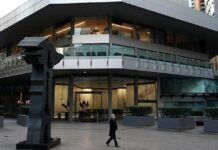Inflation and the Cost of Living
The governor of the Bank of England, Andrew Bailey, has issued a warning to firms that raising prices could result in increased cost of living for the least well-off individuals. Bailey emphasized that individuals with lower incomes tend to spend a larger proportion of their earnings on food and fuel, meaning that any price increases in these areas could have significant consequences for them. Bailey added that if prices continued to rise, the Bank would take action by raising interest rates once again, following a recent increase to the highest level in 14 years, prompted by an unexpected jump in prices last month.
Reflection on Costs and Inflation
According to Bailey, firms need to be aware of the consequences of higher inflation and how it can negatively impact people’s lives. Raising prices can lead to inflation becoming embedded, a trend that Bailey seeks to prevent by lowering the rate of inflation. The Bank has been increasing interest rates gradually to discourage borrowing and reduce spending in an effort to slow down the rise in prices. While Bailey has not yet seen evidence of firms increasing prices unnecessarily, he acknowledged that they must reflect the costs they face. Martin Williams, chief executive of Rare Restaurants, argued that businesses have already been restrained in raising prices, and if they had reflected the increased costs, the prices of some menu items would be exorbitant. Mr Williams added that a reduction in energy bill support for businesses from April could result in restaurant closures.
UK Banking System is Safe and Sound
Bailey is confident that the UK banking system is safe and sound, despite the collapse of two US banks and the rescue of Swiss lender Credit Suisse. Bailey noted that the risk of a recession for the UK had decreased significantly, and that the prospects for economic growth were now considerably better.
Inflation and Profiteering Claims
Last year, Bailey called on workers to avoid asking for significant pay raises, prompting criticism from unions. Tesco chairman John Allan claimed in January that food firms may be using inflation as an excuse to hike prices further than necessary. The rate of inflation remains close to its highest level for 40 years, hitting 10.4% in the year to February. Higher food prices are among the main drivers of overall inflation, with the cost of everyday basics such as eggs, cheese, and milk rising sharply. Despite this, retail sales volumes rose by 1.2% in February, with strong sales in discount department stores and food shops. However, there was some evidence of people spending less in pubs and restaurants due to cost of living pressures.
Google News | Telegram
















